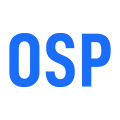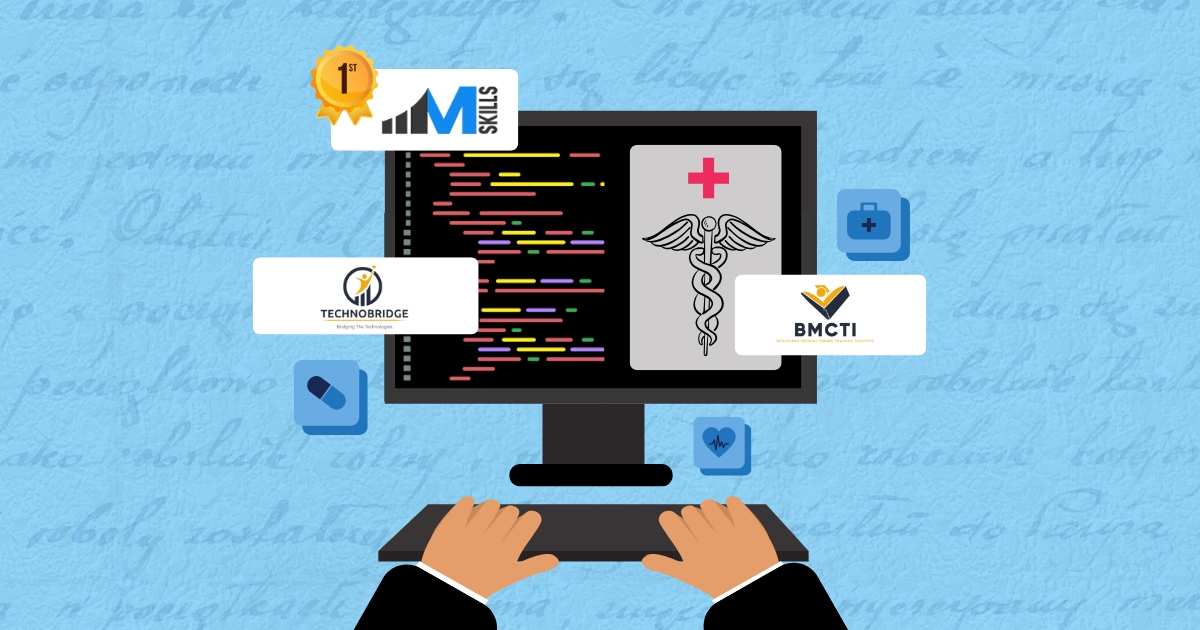Healthcare App Development: Transforming the Industry with Innovative Solutions
The healthcare industry has seen a profound shift towards digitalization in recent years. The adoption of mobile healthcare apps is one of the most impactful trends that has revolutionized the way healthcare services are delivered and managed. From improving patient care to simplifying administrative processes, healthcare app development has opened new avenues for enhancing the overall healthcare experience. In this article, we will explore the role of mobile apps in healthcare, the key features they should offer, and the importance of partnering with experienced app development companies to create cutting-edge solutions.
The Rise of Mobile Healthcare Apps
Mobile healthcare apps have emerged as essential tools in the modern healthcare ecosystem. With the increasing use of smartphones, patients and healthcare professionals alike are turning to mobile apps for managing health, accessing medical services, and streamlining operations. The convenience of accessing healthcare resources from a smartphone is a major driving force behind the growing popularity of these apps.
Healthcare apps can be divided into various categories, including patient-facing apps, doctor and healthcare professional apps, fitness and wellness apps, and administrative tools. Whether it's scheduling appointments, tracking vital signs, accessing lab results, or offering telemedicine consultations, these apps serve a range of needs and contribute to improving patient outcomes and operational efficiency.
Key Features of Healthcare Apps
When developing a healthcare app, certain features should be prioritized to ensure they provide maximum benefit to both patients and healthcare providers. Here are some of the essential features to consider:
Telemedicine Capabilities: With the rise of virtual consultations, telemedicine has become a vital aspect of healthcare. Apps that offer video conferencing features allow patients to connect with healthcare professionals remotely, saving time and improving access to care, especially in rural areas.
Electronic Health Records (EHR) Integration: Healthcare apps should seamlessly integrate with Electronic Health Record systems. This feature ensures that patients' medical history, lab reports, and medication data are accessible to healthcare providers, leading to more informed decisions and better patient care.
Appointment Scheduling: Many patients find it difficult to schedule appointments due to long wait times or lack of availability. Mobile apps that offer appointment scheduling and reminders help patients efficiently manage their healthcare needs and reduce no-shows.
Medication Management: Medication tracking and reminders are crucial for patients managing chronic conditions. Healthcare apps can send timely reminders to patients to take their medication, reducing the risk of missed doses and promoting adherence to prescribed treatment plans.
Health Monitoring: Advanced apps provide features that allow patients to track their vital signs, such as heart rate, blood pressure, glucose levels, and more. These apps help individuals take charge of their health and provide healthcare providers with valuable data to monitor their progress.
Data Security: Given the sensitive nature of healthcare data, ensuring robust security measures is crucial. Healthcare apps must comply with strict regulations like HIPAA (Health Insurance Portability and Accountability Act) to ensure patient data privacy and security.
User-Friendly Interface: Healthcare apps must be intuitive and easy to navigate for all users, including elderly patients who may not be tech-savvy. A user-friendly interface ensures that patients can access healthcare services and information with ease.
Source: https://www.osplabs.com/healthcare-app-development-services/
The healthcare industry has seen a profound shift towards digitalization in recent years. The adoption of mobile healthcare apps is one of the most impactful trends that has revolutionized the way healthcare services are delivered and managed. From improving patient care to simplifying administrative processes, healthcare app development has opened new avenues for enhancing the overall healthcare experience. In this article, we will explore the role of mobile apps in healthcare, the key features they should offer, and the importance of partnering with experienced app development companies to create cutting-edge solutions.
The Rise of Mobile Healthcare Apps
Mobile healthcare apps have emerged as essential tools in the modern healthcare ecosystem. With the increasing use of smartphones, patients and healthcare professionals alike are turning to mobile apps for managing health, accessing medical services, and streamlining operations. The convenience of accessing healthcare resources from a smartphone is a major driving force behind the growing popularity of these apps.
Healthcare apps can be divided into various categories, including patient-facing apps, doctor and healthcare professional apps, fitness and wellness apps, and administrative tools. Whether it's scheduling appointments, tracking vital signs, accessing lab results, or offering telemedicine consultations, these apps serve a range of needs and contribute to improving patient outcomes and operational efficiency.
Key Features of Healthcare Apps
When developing a healthcare app, certain features should be prioritized to ensure they provide maximum benefit to both patients and healthcare providers. Here are some of the essential features to consider:
Telemedicine Capabilities: With the rise of virtual consultations, telemedicine has become a vital aspect of healthcare. Apps that offer video conferencing features allow patients to connect with healthcare professionals remotely, saving time and improving access to care, especially in rural areas.
Electronic Health Records (EHR) Integration: Healthcare apps should seamlessly integrate with Electronic Health Record systems. This feature ensures that patients' medical history, lab reports, and medication data are accessible to healthcare providers, leading to more informed decisions and better patient care.
Appointment Scheduling: Many patients find it difficult to schedule appointments due to long wait times or lack of availability. Mobile apps that offer appointment scheduling and reminders help patients efficiently manage their healthcare needs and reduce no-shows.
Medication Management: Medication tracking and reminders are crucial for patients managing chronic conditions. Healthcare apps can send timely reminders to patients to take their medication, reducing the risk of missed doses and promoting adherence to prescribed treatment plans.
Health Monitoring: Advanced apps provide features that allow patients to track their vital signs, such as heart rate, blood pressure, glucose levels, and more. These apps help individuals take charge of their health and provide healthcare providers with valuable data to monitor their progress.
Data Security: Given the sensitive nature of healthcare data, ensuring robust security measures is crucial. Healthcare apps must comply with strict regulations like HIPAA (Health Insurance Portability and Accountability Act) to ensure patient data privacy and security.
User-Friendly Interface: Healthcare apps must be intuitive and easy to navigate for all users, including elderly patients who may not be tech-savvy. A user-friendly interface ensures that patients can access healthcare services and information with ease.
Source: https://www.osplabs.com/healthcare-app-development-services/
Healthcare App Development: Transforming the Industry with Innovative Solutions
The healthcare industry has seen a profound shift towards digitalization in recent years. The adoption of mobile healthcare apps is one of the most impactful trends that has revolutionized the way healthcare services are delivered and managed. From improving patient care to simplifying administrative processes, healthcare app development has opened new avenues for enhancing the overall healthcare experience. In this article, we will explore the role of mobile apps in healthcare, the key features they should offer, and the importance of partnering with experienced app development companies to create cutting-edge solutions.
The Rise of Mobile Healthcare Apps
Mobile healthcare apps have emerged as essential tools in the modern healthcare ecosystem. With the increasing use of smartphones, patients and healthcare professionals alike are turning to mobile apps for managing health, accessing medical services, and streamlining operations. The convenience of accessing healthcare resources from a smartphone is a major driving force behind the growing popularity of these apps.
Healthcare apps can be divided into various categories, including patient-facing apps, doctor and healthcare professional apps, fitness and wellness apps, and administrative tools. Whether it's scheduling appointments, tracking vital signs, accessing lab results, or offering telemedicine consultations, these apps serve a range of needs and contribute to improving patient outcomes and operational efficiency.
Key Features of Healthcare Apps
When developing a healthcare app, certain features should be prioritized to ensure they provide maximum benefit to both patients and healthcare providers. Here are some of the essential features to consider:
Telemedicine Capabilities: With the rise of virtual consultations, telemedicine has become a vital aspect of healthcare. Apps that offer video conferencing features allow patients to connect with healthcare professionals remotely, saving time and improving access to care, especially in rural areas.
Electronic Health Records (EHR) Integration: Healthcare apps should seamlessly integrate with Electronic Health Record systems. This feature ensures that patients' medical history, lab reports, and medication data are accessible to healthcare providers, leading to more informed decisions and better patient care.
Appointment Scheduling: Many patients find it difficult to schedule appointments due to long wait times or lack of availability. Mobile apps that offer appointment scheduling and reminders help patients efficiently manage their healthcare needs and reduce no-shows.
Medication Management: Medication tracking and reminders are crucial for patients managing chronic conditions. Healthcare apps can send timely reminders to patients to take their medication, reducing the risk of missed doses and promoting adherence to prescribed treatment plans.
Health Monitoring: Advanced apps provide features that allow patients to track their vital signs, such as heart rate, blood pressure, glucose levels, and more. These apps help individuals take charge of their health and provide healthcare providers with valuable data to monitor their progress.
Data Security: Given the sensitive nature of healthcare data, ensuring robust security measures is crucial. Healthcare apps must comply with strict regulations like HIPAA (Health Insurance Portability and Accountability Act) to ensure patient data privacy and security.
User-Friendly Interface: Healthcare apps must be intuitive and easy to navigate for all users, including elderly patients who may not be tech-savvy. A user-friendly interface ensures that patients can access healthcare services and information with ease.
Source: https://www.osplabs.com/healthcare-app-development-services/
0 Comments
0 Shares
467 Views
0 Reviews





